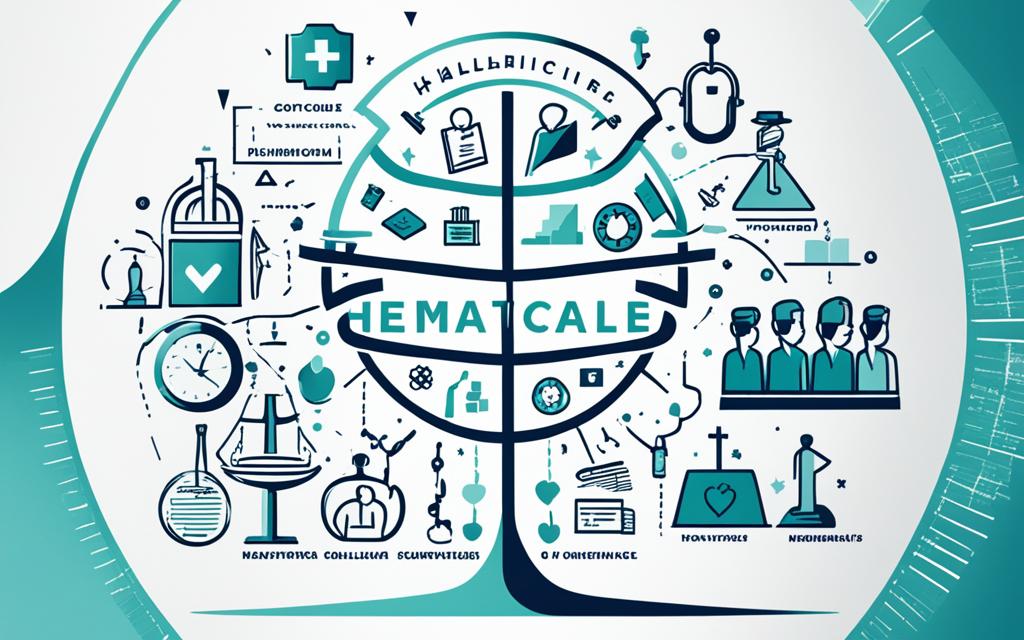The healthcare industry is a highly regulated domain, with numerous laws and regulations governing various aspects of patient care, data privacy, fraud prevention, and overall compliance. As a medical professional, you must navigate this complex legal landscape to ensure the integrity and safety of the healthcare system. This article will provide an in-depth exploration of the key legal aspects of healthcare compliance, including HIPAA, the Anti-Kickback Statute, the Stark Law, and other critical regulations. It will also cover the importance of compliance, the consequences of noncompliance, and the responsibilities of healthcare organizations and providers in maintaining compliance. By understanding the legal framework and best practices, you can safeguard your career and uphold the highest standards of patient care.
Key Takeaways
- The healthcare industry is highly regulated, with numerous laws and regulations governing patient care, data privacy, fraud prevention, and compliance.
- Medical professionals must navigate the complex legal landscape to ensure the integrity and safety of the healthcare system.
- Understanding key compliance laws, such as HIPAA, the Anti-Kickback Statute, and the Stark Law, is crucial for medical professionals.
- Maintaining compliance is essential to safeguard your career and uphold the highest standards of patient care.
- Noncompliance can result in severe consequences, including fines, legal actions, and damage to reputation.
Understanding Healthcare Compliance
Healthcare compliance refers to the practice of adhering to local, state, and federal laws and regulations that govern the healthcare industry. These regulations are in place to protect patient privacy, ensure quality care, prevent fraud and abuse, and maintain the integrity of the healthcare system.
What is Healthcare Compliance?
Healthcare compliance encompasses the various rules, regulations, and standards that healthcare providers and organizations must follow to ensure the delivery of safe, ethical, and high-quality patient care. This includes compliance with laws such as the Health Insurance Portability and Accountability Act (HIPAA), which safeguards patient privacy and data security, as well as regulations that prevent fraud and abuse in the healthcare system.
Why is Healthcare Compliance Important?
Compliance with healthcare regulations is critical for several reasons. By adhering to these rules, healthcare providers and organizations can protect patient welfare, uphold ethical standards, and avoid the severe consequences of noncompliance, which can include fines, legal actions, and damage to their reputation. Compliance is especially crucial in the dynamic and highly complex healthcare industry, where the stakes are high and the potential for harm is significant.
Legal Aspects of Healthcare
The healthcare industry is subject to a myriad of laws and regulations that govern various aspects of patient care, data privacy, and financial practices. Some of the key healthcare compliance laws include:
Healthcare Compliance Laws
These laws establish the legal framework for healthcare organizations and providers to operate within, addressing critical areas such as patient privacy, fraud prevention, and quality of care. Understanding and adhering to these laws is essential for maintaining compliance and avoiding the severe consequences of noncompliance.
HIPAA and Patient Privacy
The Health Insurance Portability and Accountability Act (HIPAA) is a federal law that sets standards for the protection of sensitive patient health information, including electronic, written, or oral communication. The HIPAA Privacy Rule and Security Rule outline specific requirements for healthcare organizations to safeguard patient data and protect individual privacy.
Anti-Kickback Statute and Stark Law
The Anti-Kickback Statute is a federal law that prohibits the exchange (or offer to exchange) of anything of value in an effort to induce or reward the referral of federal healthcare program business. The Stark Law, on the other hand, restricts physicians from referring patients to healthcare services in which they (or their immediate family members) have a financial interest.

Patient Safety and Quality Improvement
Ensuring patient safety and quality of care is a fundamental aspect of healthcare compliance. Two key regulations in this area are:
Emergency Medical Treatment & Labor Act (EMTALA)
EMTALA, enacted in 1986, requires hospitals with emergency departments to provide stabilizing treatment to any individual who arrives at the facility, regardless of their insurance status or ability to pay. This law aims to prevent patient dumping and ensure that all patients receive necessary emergency medical care. Healthcare providers must be familiar with EMTALA’s requirements to avoid potential violations and ensure that patients receive the appropriate treatment they need.
Patient Safety and Quality Improvement Act (PSQIA)
The PSQIA, passed in 2005, was designed to improve patient safety and quality of care by encouraging healthcare providers to voluntarily report and analyze patient safety events. The act establishes a network of Patient Safety Organizations (PSOs) that collect, aggregate, and analyze data related to patient safety, with the goal of identifying and implementing best practices to prevent future errors. By fostering a culture of transparency and continuous improvement, the PSQIA aims to enhance patient safety and drive quality improvement throughout the healthcare system.
Fraud Prevention and False Claims
Preventing fraud and false claims is a critical aspect of healthcare fraud prevention. The False Claims Act (FCA) is a federal law that makes it illegal to file false claims for federal program funds, such as Medicare or Medicaid. Violations of the FCA can result in significant fines and penalties, as well as potential criminal charges.
False Claims Act (FCA)
The False Claims Act (FCA) is a powerful tool in the fight against healthcare fraud prevention. The FCA allows the government and private individuals to bring civil actions against individuals or organizations that knowingly submit false claims for payment to the government. This includes submitting claims for services not rendered, inflating the cost of services, or billing for a higher level of service than was actually provided.
Consequences of Noncompliance
The consequences of noncompliance with the FCA can be severe. Violators can face civil penalties of up to $21,563 per false claim, as well as three times the amount of the government’s damages. In addition, individuals who report fraud under the FCA may be entitled to a portion of the recovery, creating a strong incentive for whistleblowers to come forward.
Beyond the financial penalties, healthcare organizations and providers that engage in false claims can also face criminal charges, exclusion from federal healthcare programs, and damage to their reputation. The stakes are high, and it is essential for all healthcare professionals to understand and adhere to the requirements of the FCA to protect the integrity of the healthcare system.

Healthcare Compliance Responsibilities
Ensuring healthcare compliance is the responsibility of all healthcare professionals and organizations. Everyone in a healthcare setting, from doctors and nurses to administrators and support staff, must adhere to the established healthcare compliance laws and regulations. This shared responsibility is crucial for protecting patient welfare, upholding ethical standards, and maintaining the integrity of the healthcare system.
Who is Responsible for Healthcare Compliance?
Healthcare compliance is not solely the burden of a single individual or department. It is a collective effort that requires the engagement and accountability of everyone involved in the delivery of healthcare services. This includes physicians, nurses, pharmacists, medical assistants, billing specialists, IT professionals, and administrative personnel. Each member of the healthcare team plays a vital role in ensuring healthcare compliance responsibilities are met.
Government Agencies and Healthcare Compliance
The government agencies responsible for overseeing and enforcing healthcare compliance include the Centers for Medicare & Medicaid Services (CMS), the Department of Health and Human Services (HHS), the Office of Inspector General (OIG), and the Department of Justice (DOJ). These agencies are responsible for developing and implementing healthcare compliance regulations, as well as investigating and penalizing noncompliance. Healthcare organizations and providers must stay informed about the latest government agency requirements and guidelines to ensure they maintain full compliance.
Careers in Healthcare Compliance
Pursuing a career in healthcare compliance offers individuals the opportunity to uphold the ethical standards and integrity of the healthcare industry. As the healthcare landscape continues to evolve, the demand for skilled professionals in careers in healthcare compliance is growing.
Healthcare compliance professionals play a crucial role in ensuring that healthcare organizations adhere to the numerous laws and regulations governing the industry. These individuals are responsible for developing, implementing, and monitoring compliance programs that protect patient privacy, prevent fraud and abuse, and maintain the highest standards of care.
| Career Path | Job Responsibilities | Required Skills |
|---|---|---|
| Compliance Officer | Oversee the implementation and maintenance of compliance programs, conduct risk assessments, and investigate potential violations. | Strong understanding of healthcare laws and regulations, problem-solving, attention to detail, excellent communication skills. |
| Compliance Analyst | Analyze data, monitor compliance activities, and identify potential areas of non-compliance. | Data analysis, critical thinking, attention to detail, understanding of healthcare compliance requirements. |
| Compliance Trainer | Develop and deliver training programs to educate healthcare staff on compliance policies and procedures. | Excellent communication and presentation skills, knowledge of adult learning principles, expertise in healthcare compliance. |
| Compliance Auditor | Conduct internal audits to assess the effectiveness of compliance programs and identify areas for improvement. | Auditing skills, attention to detail, understanding of regulatory requirements, analytical thinking. |
Careers in healthcare compliance offer a wide range of opportunities for individuals with diverse backgrounds, from healthcare professionals to legal experts and data analysts. By pursuing a career in this field, you can contribute to the well-being of patients, protect the integrity of the healthcare system, and advance your own professional development.

Implementing a Healthcare Compliance Program
Establishing a comprehensive healthcare compliance program is essential for organizations to maintain regulatory adherence and ethical standards. The key components of an effective compliance program include:
Key Components of a Compliance Program
- Designation of a compliance officer and compliance committee to oversee the program
- Development and implementation of written policies and procedures to guide healthcare compliance efforts
- Comprehensive employee training and education on compliance-related topics
- Robust internal monitoring and auditing processes to identify and address potential issues
- Effective communication channels for employees to report compliance concerns without fear of retaliation
- Corrective action plans and disciplinary measures to address non-compliance
Challenges in Healthcare Compliance
While implementing a healthcare compliance program is crucial, it is not without its challenges. Some of the key hurdles organizations may face include:
| Challenge | Description |
|---|---|
| Regulatory Complexity | The healthcare industry is subject to a vast and constantly evolving array of laws and regulations, making it challenging to stay up-to-date and ensure comprehensive compliance. |
| Resource Constraints | Implementing and maintaining a robust compliance program can be resource-intensive, requiring dedicated personnel, training, and ongoing monitoring, which can be a burden for some healthcare organizations. |
| Organizational Culture | Fostering a culture of compliance throughout an organization can be challenging, as it requires buy-in and commitment from all levels of staff, from the C-suite to frontline employees. |
| Data Security and Privacy | Safeguarding sensitive patient data and ensuring compliance with regulations like HIPAA and GDPR is a constant concern for healthcare providers. |
By acknowledging these challenges and addressing them proactively, healthcare organizations can develop and maintain a strong compliance program that protects patients, upholds ethical standards, and mitigates the risks of non-compliance.
Data Security and Healthcare Compliance
In the digital age, data security has become a paramount concern for healthcare organizations. As the industry continues to embrace electronic health records (EHRs) and other health information technology, the need to safeguard sensitive patient data has never been more critical. The HITECH Act, which complements the Health Insurance Portability and Accountability Act (HIPAA), has placed a renewed emphasis on secure electronic health information exchange and the adoption of EHRs.
HITECH Act and Electronic Health Records
The HITECH Act, or the Health Information Technology for Economic and Clinical Health Act, was enacted in 2009 to promote the widespread use of EHRs and enhance the security and privacy of electronic health information. This landmark legislation has had a significant impact on the healthcare industry, driving the adoption of EHRs and establishing strict requirements for the protection of electronic health records. Healthcare organizations that fail to comply with the HITECH Act’s security and privacy provisions can face severe penalties, including substantial fines and potential legal actions.
Cybersecurity and Data Breach Prevention
The healthcare industry has become a prime target for cybersecurity threats, with data breaches and ransomware attacks posing significant risks to patient privacy and the integrity of healthcare systems. Maintaining robust data breach prevention strategies is essential for healthcare organizations to comply with regulatory requirements and protect against the devastating consequences of a data breach. This includes implementing strong access controls, encrypting sensitive data, and regularly updating security protocols to stay ahead of evolving cyber threats.
| Key Aspects of Healthcare Data Security | Importance for Healthcare Compliance |
|---|---|
| HITECH Act and EHR Adoption | Drives the secure adoption and use of electronic health records, ensuring compliance with privacy and security requirements. |
| Cybersecurity and Data Breach Prevention | Protects against cyber threats and data breaches, which can lead to severe penalties and reputational damage for healthcare organizations. |
| Encryption of Sensitive Data | Safeguards patient information and meets the encryption requirements outlined in HIPAA and other regulations. |
| Robust Access Controls | Ensures only authorized personnel can access and manage sensitive healthcare data, demonstrating compliance with privacy and security rules. |
By prioritizing data security and implementing comprehensive healthcare compliance measures, healthcare organizations can protect patient privacy, maintain the integrity of their systems, and avoid the severe consequences of noncompliance.

Healthcare Compliance and Patient Privacy
Protecting patient privacy is a fundamental aspect of healthcare compliance. In addition to HIPAA and the HITECH Act, other regulations, such as the General Data Protection Regulation (GDPR) and the California Consumer Privacy Act (CCPA), have also strengthened patient data protection requirements.
GDPR and Patient Data Protection
The GDPR, a comprehensive data privacy and security regulation adopted by the European Union, has had a significant impact on the healthcare industry globally. This regulation establishes strict guidelines for the collection, storage, and processing of patient privacy data, ensuring that healthcare organizations prioritize the protection of patient data. Compliance with GDPR is essential for any healthcare provider or organization that collects or processes the personal information of EU citizens, regardless of their location.
California Consumer Privacy Act (CCPA)
In the United States, the California Consumer Privacy Act (CCPA) has emerged as a landmark legislation that enhances patient privacy protections. This law grants California residents greater control over their personal data, including the right to access, delete, and opt-out of the sale of their information. Healthcare providers and organizations operating in California must ensure that their healthcare compliance practices align with the CCPA’s stringent requirements to safeguard patient data protection.
By adhering to these evolving privacy regulations, healthcare professionals and organizations can demonstrate their commitment to patient privacy and strengthen public trust in the industry’s ability to safeguard sensitive patient data. Maintaining compliance with GDPR, CCPA, and other privacy-focused regulations is essential for upholding the highest standards of healthcare compliance and patient-centric care.
Healthcare Compliance in Practice
Implementing healthcare compliance is not just a theoretical exercise but a critical daily practice within healthcare organizations. Understanding real-life examples of compliance violations can shed light on the serious consequences that can arise from non-compliance.
Real-Life Examples of Compliance Violations
One notable case involved a large hospital system that was fined $4.8 million by the U.S. Department of Health and Human Services (HHS) for HIPAA violations. The hospital had failed to properly secure the electronic protected health information (ePHI) of over 6.1 million individuals. This resulted in a data breach that exposed sensitive patient data, highlighting the importance of robust data security measures in maintaining healthcare compliance.
In another instance, a medical device manufacturer was accused of violating the Anti-Kickback Statute by providing physicians with lavish trips, expensive meals, and other improper inducements to use the company’s products. The company ultimately paid a $30 million settlement, underscoring the need for healthcare organizations to strictly adhere to fraud prevention regulations.
Best Practices for Maintaining Compliance
To ensure healthcare compliance in practice, healthcare organizations should adopt the following best practices:
- Establish a comprehensive compliance program with clear policies, procedures, and oversight mechanisms.
- Provide regular compliance training for all employees, from healthcare providers to administrative staff.
- Implement robust data security measures, including encryption, access controls, and incident response plans, to protect patient privacy.
- Conduct regular risk assessments to identify and address potential compliance gaps.
- Foster a culture of compliance and ethical decision-making throughout the organization.
By adopting these best practices for maintaining compliance, healthcare organizations can mitigate the risk of compliance violations and uphold the highest standards of patient care and safety.
https://www.youtube.com/watch?v=4ryxY935Xeo
Emerging Trends in Healthcare Compliance
The healthcare industry is constantly evolving, and compliance requirements are keeping pace with these changes. Two notable emerging trends in healthcare compliance that medical professionals should be aware of are the Interoperability and Patient Access Final Rule and the Information Blocking Rule.
Interoperability and Patient Access Final Rule
The Interoperability and Patient Access Final Rule, implemented by the Centers for Medicare & Medicaid Services (CMS), aims to enhance patient access to their healthcare data and promote data sharing among healthcare providers. This rule requires certain healthcare organizations to provide patients with electronic access to their health information, including claims data and clinical information, through standardized application programming interfaces (APIs). By increasing data interoperability and patient access, this regulation aims to empower patients to be more engaged in their healthcare and improve overall healthcare outcomes.
Information Blocking Rule
The Information Blocking Rule, introduced by the Office of the National Coordinator for Health Information Technology (ONC), is another emerging trend in healthcare compliance. This rule prohibits healthcare providers, health IT developers, and health information exchanges from engaging in practices that may interfere with the access, exchange, or use of electronic health information (EHI). The goal of this regulation is to foster a more seamless and transparent flow of healthcare data, ultimately enhancing patient care and fostering innovation in the healthcare industry.

Conclusion
Healthcare compliance is a multifaceted and complex endeavor that requires a comprehensive understanding of the legal and regulatory landscape. By adhering to laws such as HIPAA, the Anti-Kickback Statute, and the Stark Law, healthcare organizations can protect patient privacy, ensure quality care, and prevent fraud and abuse. Maintaining healthcare compliance is essential for upholding the integrity of the healthcare system and safeguarding the well-being of patients.
As the healthcare industry continues to evolve, healthcare professionals and organizations must remain vigilant in their efforts to stay compliant with the latest regulations and best practices. This includes implementing robust data security measures, fostering a culture of compliance, and continuously educating staff on their roles and responsibilities. By prioritizing healthcare compliance, you can build trust with patients, maintain the trust of regulatory authorities, and ensure the long-term sustainability of your healthcare organization.
Ultimately, healthcare compliance is not just a legal requirement, but a moral obligation to provide the highest standard of care and protect the rights of patients. By embracing a culture of compliance and continuously improving your best practices, you can contribute to the advancement of the healthcare industry and create a safer, more equitable, and more accessible healthcare system for all.
FAQ
What is healthcare compliance?
Healthcare compliance refers to the practice of adhering to local, state, and federal laws and regulations that govern the healthcare industry. These regulations are in place to protect patient privacy, ensure quality care, prevent fraud and abuse, and maintain the integrity of the healthcare system.
Why is healthcare compliance important?
By complying with these regulations, healthcare providers and organizations can safeguard patient welfare, uphold ethical standards, and avoid the severe consequences of noncompliance, which can include fines, legal actions, and damage to reputation. Compliance is essential in the dynamic and highly complex healthcare industry, where the stakes are high and the potential for harm is significant.
What are the key healthcare compliance laws?
Some of the key healthcare compliance laws include HIPAA, the Anti-Kickback Statute, the Stark Law, EMTALA, and the False Claims Act.
What are the consequences of healthcare compliance violations?
The consequences of healthcare compliance violations can be severe, including fines, legal actions, and damage to the organization’s reputation. Non-compliance can also put patient safety and welfare at risk.
Who is responsible for ensuring healthcare compliance?
Ensuring healthcare compliance is the responsibility of all healthcare professionals and organizations. Everyone in a healthcare setting, from doctors and nurses to administrators and support staff, must adhere to the established laws and regulations.
What are the key components of an effective healthcare compliance program?
The key components of an effective healthcare compliance program include a dedicated compliance officer, comprehensive policies and procedures, employee training and education, auditing and monitoring, and a robust system for reporting and investigating compliance issues.
How does data security and patient privacy impact healthcare compliance?
Data security and patient privacy are critical components of healthcare compliance. Regulations like HIPAA and the HITECH Act mandate the secure handling and protection of electronic health information, and organizations must have robust cybersecurity measures in place to prevent data breaches.
What are some emerging trends in healthcare compliance?
Two notable emerging trends in healthcare compliance are the Interoperability and Patient Access Final Rule, which aims to improve data sharing and patient access to their health information, and the Information Blocking Rule, which prohibits the practice of blocking the electronic exchange of health information.
Source Links
- https://www.phoenix.edu/blog/what-is-healthcare-compliance.html
- https://bigid.com/blog/8-healthcare-compliance-regulations-you-should-know/
- https://securiti.ai/blog/healthcare-compliance-laws/

